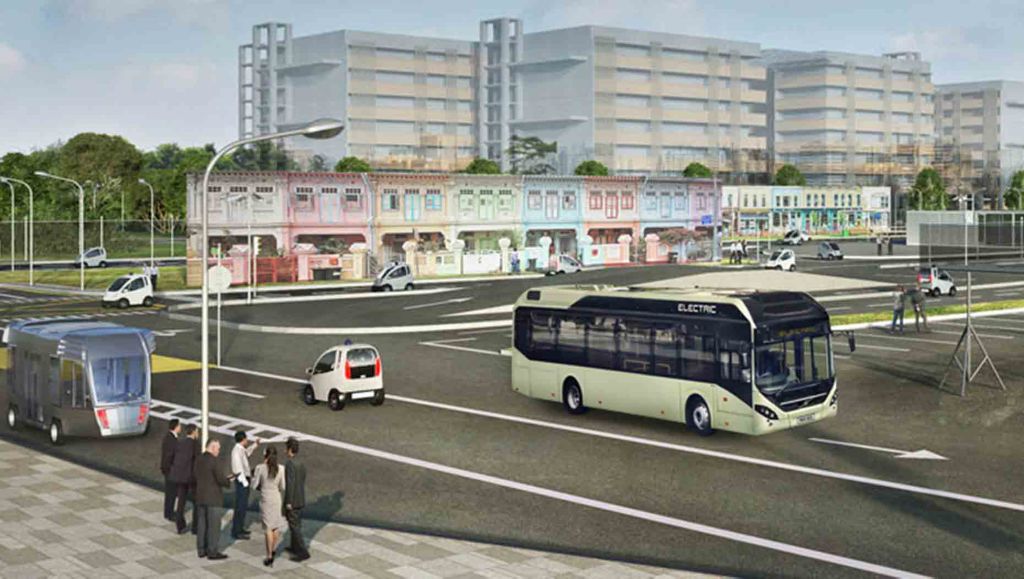Autonomous Driving Development and Testing
The project leader, Joakim Jonsson, drove the bus on-board the boat to Singapore and the test track there himself. “Volvo is currently only allowed to test self-driving vehicles on private roads” explains Joakim.
In December 2018, testing began within an enclosed test track which is the size of two football pitches and has stage scenery to represent buildings. Tropical rain storms will be simulated, among other things, to mimic the conditions that the autonomous electric buses will have to operate in.
In addition to the two buses, Volvo has also supplied an autonomous platform which will be developed on site. The buses will not only have to operate autonomously, but must also be able to travel to a depot and recharge their batteries independently.
The importance of partnership
“Singapore is near the top of the rankings for the acceptance of automated technology, according to a study carried out by KPMG, but it is much lower down the scale when it comes to manufacturing,” explains Joakim. By contrast, the same study showed that Sweden has a strong manufacturing sector. “That makes us the perfect match,” says Joakim with a smile.
This type of cooperative project has major advantages.
“Technology that works in one part of the world does not necessarily function well elsewhere. The definition of automation is not the same all over the world.
For example, in Singapore buses must be fully autonomous. They should not rely on roadside infrastructure for support, but must be able to read traffic road signs independently, for instance,” explains Joakim.
NTU is no stranger to Autonomous driving research and advanced transportation technologies as the university is the first in Singapore to demonstrate autonomous vehicle technologies since 2013.
Professor Subodh Mhaisalkar, Associate Vice President for Strategy & Partnerships, said, “Here at NTU, industry-academic partnerships are key elements in nurturing an ecosystem which promotes translational research excellence to develop innovations that will impact industry and society.
Our partnership with Volvo attests to this and we are proud that both organisations will have a hand in changing the way people travel in future.
NTU is already leading the way in transport innovation in Singapore as our entire campus is a living test-bed for a variety of cutting edge technologies such as fast-charging electric vehicles to fully autonomous mini buses.”
Watch the video “Autonomous technology - the next step in making electric buses even smarter”
Do you want to work with new technologies? Check out open positions here
Read more about automation and electromobility

